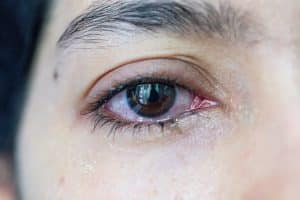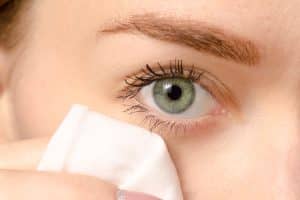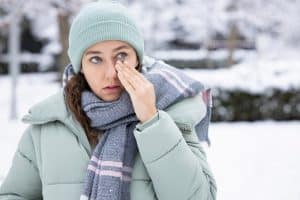If you’ve noticed changes to your vision or the appearance of your eyes as you’ve grown older, you’re not alone. Many people have this experience as they age. Fortunately though, many age-related changes can be slowed down or corrected.
In this blog post, we discuss some of the most common changes your eyes can go through as you get older, looking at everything from eye dryness and floaters in your vision to cataracts and muscle weakness. We also provide some handy pointers on protecting your eye health.
Five things that happen to your eyes as you get older
Like any other part of your body, your eyes can change throughout your life, and it can be difficult to know if some changes are a result of the natural ageing process or a sign of an underlying problem. That’s why it’s important to get your eyes checked by an optician at least once every two years.
To find out more about the changes that might happen to your eyes as you age, read on.
Does eye colour change with age?
Usually, the eye colour you have at about 12 months old is the eye colour you’ll have for the rest of your life. However, there is some variation, with some people’s eye colour becoming permanent at six months and some not settling completely until around six years old.
As an adult, your eyes will normally stay the same colour as you grow older. There are some exceptions but these tend to be related to environmental factors, health conditions, medications or trauma.
For example, you may notice that your irises (the coloured part of your eyes), develop tiny brown spots as you age. These may be freckles caused by sun exposure and are usually harmless. If they’re larger or they look mole-like, they may be a risk factor for cancer so it’s a good idea to have them checked by an eye doctor. To protect your eyes from sun damage, you should wear a pair of good quality sunglasses all year round and limit your sun exposure.
Cataracts can also cause the colour of the eye to look different. These refer to cloudy-looking patches that can appear on the lens of your eyes. Cataracts are more common in older people and can affect your vision. If you have this problem, stronger glasses may suffice for a while but surgery is often required to resolve the issue.[1]
Can eyesight improve with age?
It’s not uncommon for eyesight to deteriorate as we age, but there might be a time when you feel like your vision is improving as an older adult. Perhaps surprisingly, this can happen in the early stages of cataract development when the lens swells just before a cataract forms. This is often referred to as ‘second sight’ and is unfortunately a temporary phenomenon.[2]
Do eye floaters get worse with age?
Eye floaters are dots, lines, rings and web-like structures that can appear in your vision. They’re common and tend not to be serious. Unfortunately, they’re more likely to occur as you get older. This is because the gel inside your eyes liquefies as you age and pulls away from the retina. Small opaque patches may develop in the gel and appear as floaters in your vision. These floaters do not usually affect eyesight and become less noticeable over time. Wearing dark glasses can help to make them less apparent.
If your visual disturbances become more severe and you experience flashing, a black shadow over your vision or reduced vision, you should seek medical advice as soon as possible.[3]
Do eye muscles weaken with age?
Yes, eye muscles often get weaker with age. This can result in a slight sagging or drooping of the eyelids. This is usually caused by the normal ageing process but can be associated with a rare long-term condition called myasthenia, which causes muscle weakness. It is most common in women over 40 and men over 60. Other signss can include double vision, trouble chewing and slurred speech. You should see your doctor if you suspect you may have this condition.[4]
Do eyes get more bloodshot with age?
Red or bloodshot eyes are often caused by irritants, such as dust, sunlight, heat and pollen. However, eye dryness, which is more common in the over 50s, can also be to blame. If you have dry eyes, you may find that your eyes feel gritty, look red and are itchy or watery. Stopping smoking, limiting your alcohol intake and reducing your screen time can help. You may also want to use a humidifier to prevent the air from drying out and try hydrating eye drops, such as TheraTears® Dry or Tired 50+ Eye Drops For Older Eyes or TheraTears® Overnight Restore Eye Drops. These eye drops contain hyaluronic acid to boost the moisture in your eyes and reduce dry eye irritation.[5]
If you are concerned about eye redness or any other aspect of your eye health, you should consult your pharmacist, optician or doctor.
Resources:
[1] https://www.aao.org/eye-health/tips-prevention/why-are-my-eyes-changing-color
[2] https://www.aao.org/eye-health/ask-ophthalmologist-q/how-long-does-second-sight-last
[3] https://www.nhs.uk/conditions/floaters-and-flashes-in-the-eyes/







